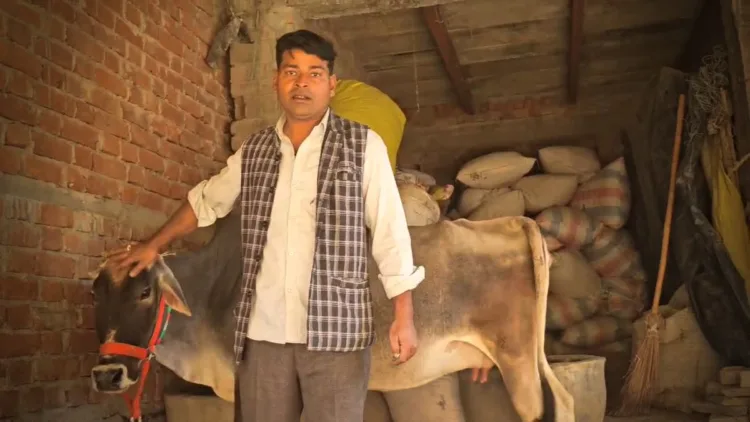A small village in Uttar Pradesh’s Jaunpur district, about 200 kilometers from Lucknow, is making headlines for a unique trend: Muslims in Dehri are adopting Hindu surnames like Dubey, Shukla, and Pandey. This phenomenon gained widespread attention after a wedding invitation card bearing the name “Naushad Ahmed Dubey” went viral on social media, sparking curiosity and debate.
Rediscovery of Ancestry
In Dehri, almost every Muslim family claims ancestral ties to Hindu Dharma, with many tracing their lineage back to Brahmin or Kshatriya roots. Naushad Ahmed, now known as Naushad Ahmed Dubey, recounted how his great-grandfather, Lal Bahadur Dubey, migrated to Dehri and purchased a zamindari (feudal estate) from Hazari Singh. However, at some point, Lal Bahadur converted to Islam, adopting a new faith but leaving his Hindu surname behind.
Naushad shared his family’s oral history:
“Our elders were addressed as ‘Pandit ji’ in the village. I have always wondered why my ancestor converted to Islam. Despite this, our roots remain firmly connected to our Hindu lineage.”
Naushad, like many others in the village, has reclaimed his ancestral surname to honour his heritage, despite practising Islamic rituals and offering namaz five times a day. He also owns seven cows, symbolising his connection to Indian traditions, and says he does not shy away from applying a tilak on his forehead. However, he clarifies, “I have no desire to reconvert.”
Wider Adoption of Hindu Surnames
Dehri is home to other Muslims who have similarly adopted Hindu surnames, such as Shiraz Shukla and Abdullah Dubey. For many, this change signifies a desire to reconnect with their origins and bridge communal divides.
Ehtesham Ahmed, another villager, acknowledges his Brahmin ancestry but has yet to adopt a Hindu surname. He shared:
“I am still tracing which surname my forefathers used. Many families in the village have already started using titles like Dubey, Pandey, and Thakur.”
Historian Rajiv Srivastava, president of Vishal Bharat Sansthan, corroborated these claims, stating that records show several Dehri families descending from Brahmins with the Vatsa gotra. This historical connection has encouraged many villagers to reclaim their surnames.
A Longstanding Practice
While some families in Dehri have recently embraced Hindu surnames, others have been using them for decades. Villagers argue that titles like Chaudhary, Solanki, Tyagi, and Patel have long been part of their identities without raising eyebrows. However, the adoption of distinctly Brahmin surnames like Dubey and Thakur has drawn significant attention.
Naushad remarked:
“I never used ‘Sheikh’ with my name, like many of my relatives, because it is an Arabic title and not Indian. My surname reflects our Indian roots, which I am proud of.”
Cultural Unity Amid Religious Differences
The adoption of Hindu surnames is not about religious conversion or reconversion but about acknowledging ancestral roots. Many Dehri residents emphasise that their decision stems from a desire for unity and mutual respect. Naushad articulated the village’s sentiment: “Religion should promote humanity, not hatred.”
The story of Dehri showcases how a community’s acknowledgement of shared heritage can foster understanding and unity. By reclaiming their ancestral surnames, Muslims in this village highlight the cultural intersections of their lineage, proving that history and heritage often transcend religious boundaries.



















Comments